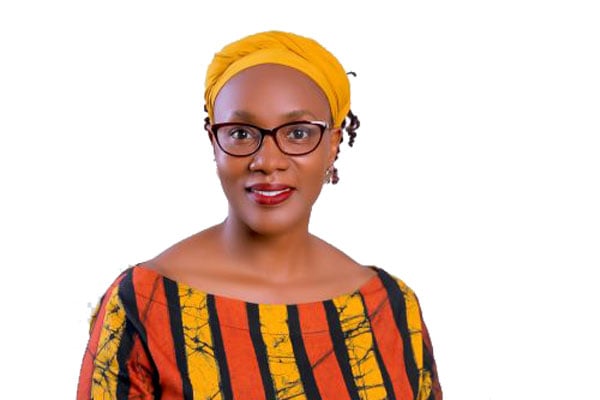Digital empowerment: A call to action for women’s online safety

Author: Tricia Gloria Nabaye. PHOTO/FILE
What you need to know:
- ...it is important for Ugandans, policymakers, and lawmakers to push for checks and balances that will make the internet safe for women and girls and open to everyone.
As we continue to celebrate this year’s International Women’s Day with the theme “DigitAll: Innovation and technology for gender equality,” we must acknowledge that women’s exclusion from the digital world leaves us all behind. Women in Uganda can benefit from the internet, but it also poses risks. Online violence is a growing problem around the world, and women and girls are often the targets of harassment based on their gender.
For example, according to a report titled Alternate realities, alternate internets: African Feminist Research for a Feminist Internet by Pollicy, one-third of Ugandan women have experienced gender-based harassment online, with sexual harassment accounting for 42 percent of the experiences, including offensive name-calling and stalking. The offline-online narrative needs to be cross-examined to address the realities of violence that women experience offline that are now happening online too.
The fact that women do not know enough about digital security and safety measures is a big problem. This makes them more likely to be victims of online crimes like identity theft, stalking, and bullying. Also, women who are victims of online abuse may be afraid to tell anyone because of the shame and trolls that come with it. This makes it hard to hold abusers and harassers accountable for their actions, which keeps abuse and harassment going.
Online abuse and harassment can have serious effects on the mental and emotional health of the people who are hurt by it. It has been proven (in the report above) that women who experience online abuse may suffer from anxiety, depression, and post-traumatic stress disorder (PTSD). They may also face social isolation and withdrawal, which would impact their ability to participate in both online and offline communities. Online abuse and harassment can also lead to physical harm and, in the worst cases, even death.
Because of this, it is very important for Ugandans, policymakers, and lawmakers to push for checks and balances that will make the internet safe for women and girls and open to everyone. Collaboration is necessary to leverage cyberspace for a safer internet in our effort to achieve gender equality. At the national level, we need to turn digital rights and privileges into things that can be done, such as making digital devices more affordable, improving the internet based on the public interest, making it easier for people to access, and getting rid of taxes on the internet.
In general, national laws need to consider the fact that women in rural areas and women with disabilities are often left out and address the structural reasons for this. We must also customize laws to the local perspective and language of the last mile of Uganda. Government officials and private citizens need to work for solutions that stop online harassment within a set of laws that don’t hurt freedom of speech.
Training law enforcement officers will help them understand how online abuse and harassment are dangerous to women and how important it is to make it a crime under Uganda’s cyber laws. The civil society should encourage a lot of people to get involved and work for a safer internet for women. The need for public participation in internet governance has never been more important. As Ugandans, we should promote diversity and inclusion on online platforms and give everyone a seat at the table to define the future of the internet.
Let us all play a role in creating a safer internet for women and girls in Uganda. Officials in government, policymakers, lawmakers, and people in civil society should work together to make the internet safe and open to everyone. Let us use Uganda’s cyber laws to stop online abuse and harassment and get more people involved in making the internet safer for women. Together, we can make the internet a safe space for everyone and explore the opportunities it holds.
The author, Ms Tricia Gloria Nabaye is a Women Digital Rights Activist.




